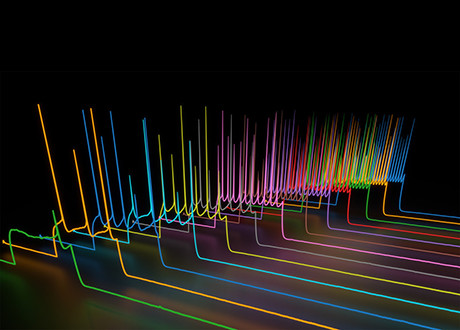To understand how the brain gives rise to thoughts, memories, perception, and consciousness, neuroscientists run experiments that measure the activity of neurons in different locations and relate it to sensation and behavior. Such experiments are conducted using diverse species, myriad instruments, and customized workflows—and they generate large (terabyte-scale), complex datasets.
To date, there has been no widely adopted data standard or format able to accommodate all of the metadata needed to aggregate neurophysiological data and conduct useful analysis of it. The inability to meaningfully aggregate data is an impediment to understanding the brain. Further, it has inhibited collaboration and made replication of specific experiments almost impossible, significantly slowing overall progress in the field.
To address these issues, a Berkeley Lab team developed a novel software architecture called Neurodata Without Borders (NWB) to serve as a standardized language for neurophysiology data and data-descriptors. The resulting data is findable, accessible, interoperable, and reusable (FAIR), and enables neuroscientists to effectively describe and communicate about their experiments and share data.
“NWB is used for all neurophysiology data modalities collected from species ranging from flies to humans during diverse tasks,” said Kristofer Bouchard, co-principal investigator for the project, leader of the Computational Biosciences Group based in the Computing Sciences Area, and a staff scientist in the Biological Systems and Engineering Division.
Neurodata Without Borders is also the name of the broad initiative to standardize neurophysiology data and to remove barriers to data sharing among neuroscientists. The effort is led by Berkeley Lab in collaboration with the Allen Institute for Brain Science and multiple neuroscience labs. This research started as a Laboratory Directed Research and Development project and was subsequently sponsored by the Kavli Foundation, the National Institutes of Health, and the Simons Foundation. NWB won an R&D 100 Award in 2019.
Read more from the Computing Sciences Area.




